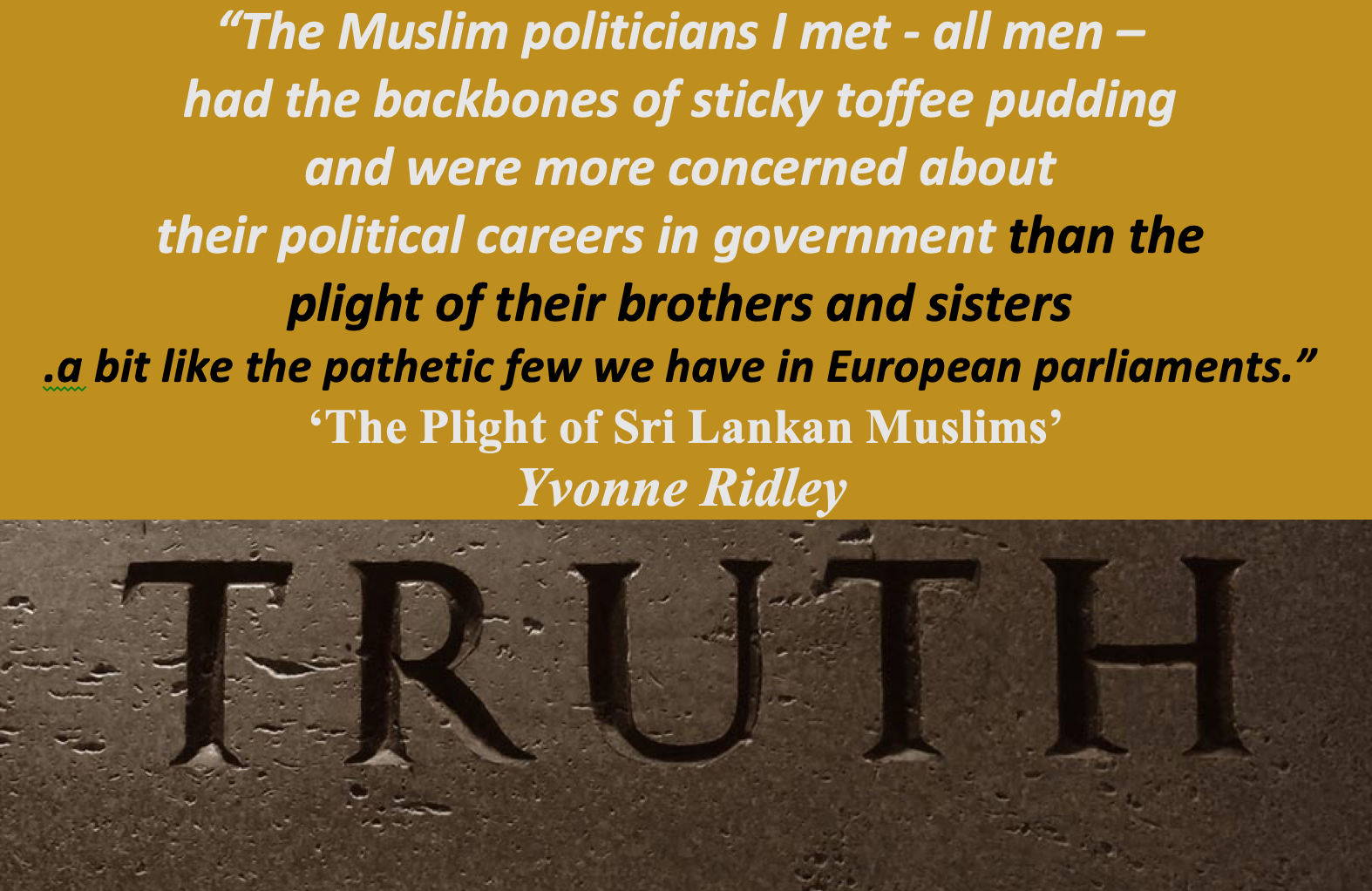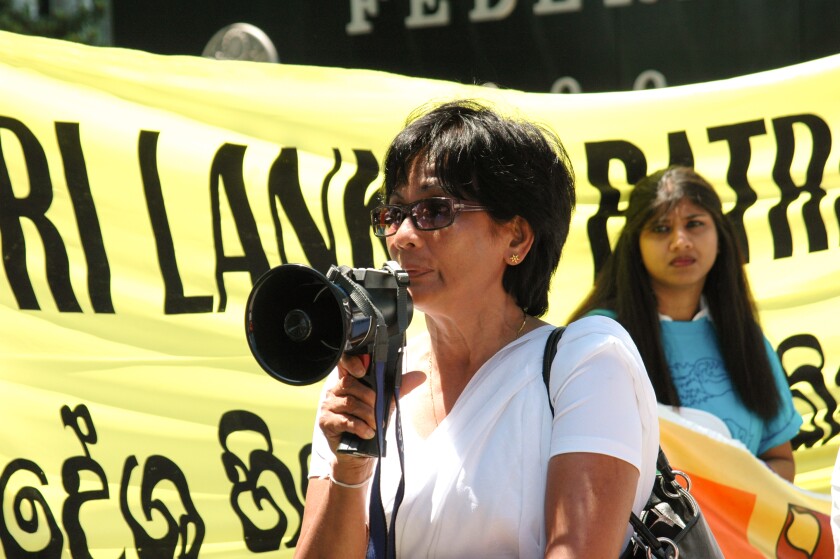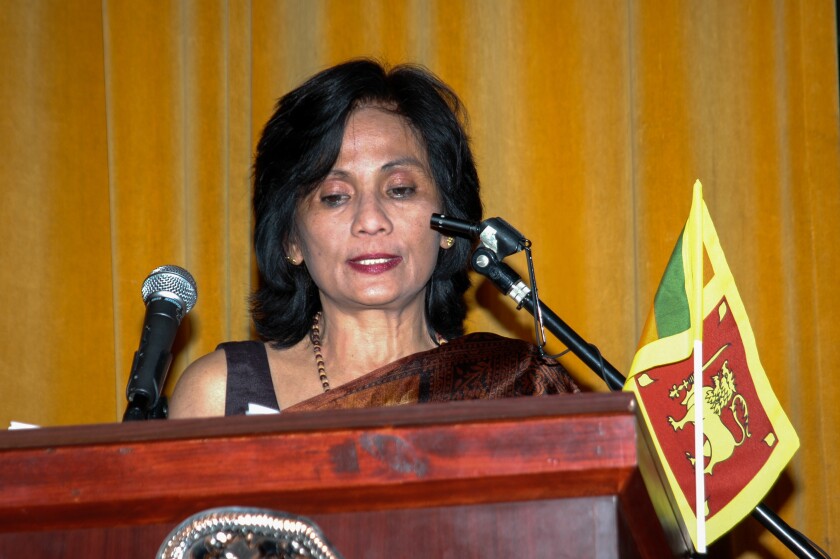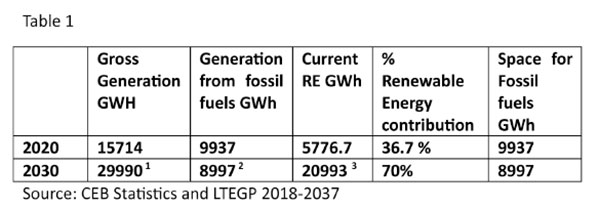KAMALIKA PIERIS
The
government of Sri Lanka took much trouble over the development of the north
after the Eelam war ended. The government called it development initiatives to
improve the quality of life for conflict affected returnee communities in the
North.”
Mahinda Rajapaksa
initiated many improvements such as houses, roads and bridges. 15,000 wells
were cleaned or renovated to provide safe drinking water. Major hospitals were
renovated, provide with additional facilities at great expense. Families were given
assistance to commence economic operations. Each family was given a package of
assistance, of not less than Rs 35,000. Paddy cultivation, food crops, dairy
farming, goat rearing and backyard poultry were encouraged.
In 2014 The Centre for Poverty Analysis (CEPA) organized an Open
Forum to share the findings of a 6-year research programme carried out by CEPA
for the Secure Livelihoods Research Consortium (SLRC), exploring how resettled
communities in selected areas in the North and East of Sri Lanka, have fared,
during the ‘postwar’ phase in accessing basic services, social protection and
livelihoods.
This essay
looks at improvements after 2015. Yahapalana government greatly helped the
north. First of all, Yahapalana government provided Samurdhi to north, which
did not have it before. This was a very
valuable service.
In June 2016 Government
allocated Rs 14 billion for high impact resettlement project in north and east
for war affected families. This was to be implemented by the Prisons and rehabilitation
ministry, under Minister Swaminathan. In August 2016 Yahapalana government said
it had allocated Rs 8000 million for
resettlement progamme, for those in camps as well as 10,000 more living with
friends.
There were 31
welfare camps in Jaffna district and 936 families consisting of 3260
members. 682 families within this group did
not own land or houses. Yahapalana stated that
it was going to close down the IDP camps and offer houses, land to build
own houses and provide financial assistance to built houses.
There is a housing programme to build 9000
housing units for IDPs, 630 for refugee returning families, 400 in former
threatened villages. 3140 houses in Jaffna district, 1035 in Kilinochchi
district, 1035 in Mullaitivu, 1140 in Mannar, 910 in Vavuniya. Also 2 lakhs per
house was provided for repairing damaged houses. There were 729 damages house
injaffna120 Kilinochchi, 170 Mullaitivu, 200 Mannar, 50 Vavuniya. Rs 480
million has been allocated for this. Rs 100 million allocate for water supply
projects, continued Yahapalana.
The Ministry
provided the following breakdown. in Jaffna they have constructed houses with
toilets for IDPs 3140 houses, renovation 720 houses, financial assistance
worth Rs. one lakh each to 3000
families, construction or renovation of
around 200 wells, over 5 million
spent on roads in Jaffna. In Kilinochchi
new houses and toilets 1035, renovation 120, livelihood assistance of Rs. one
lakh each 1600 families, new toilets for 1000 families. Also well and water connections, roads and assistance
to hospitals and schools.
In Mullaitivu
it was new houses and toilets 1035, renovation 170, livelihood assistance of Rs.
one lakh each for families, 1500, new
toilets for 1000 families. Also roads, schools, medical care units, paddy
store. In Mannar new houses and toilets 1140, renovation 200, livelihood assistance
1600, new toilets 1000, well, roads, school buildings, hospitals, electricity
connections and other infrastructure facilities. In Vavuniya new houses and toilets 910,
renovation 50, livelihood assistance
1500, new toilets 1000 roads, school
buildings.
Title deeds
were handed over to 190 families who had been temporarily settled in Sidhamabarapuram
IDP camp .They were now given deeds to the lands. Eleven new houses were handed
over in Pookkulam, Wanathavillu district. The main road to Pookklum village was
also developed.
In 2017
Ministry of national integration and reconciliation advertised proposal for
50,000 brick and mortar type housing programme for north and east for conflict
affected families. Puttalam, Vanathavilluwa, Panadhurawatha Mangalapura area
was given a new electivity connection.
For the development of the health services in the north, Rs. 5
billion in 2016 and Rs. 33 billion in 2017 was allocated. 68 primary health
care facilities in Jaffna, Kilinochchi, Vavuniya, Mannar and Mullaitivu, including
OPD, MOH offices, were provided by 2017. These were funded by the Global Fund.
Global Fund also spent Rs. 33 million to construct the new MOH office at Maradankerni.
elanai Rural Hospital and Chankanai Divisional Hospital in Jaffna were upgraded
at the cost of 6.8 million rupees.
Yahapalana government also planned to provide a new accident and
emergency care hospital, a fully-fledged child and maternity hospital and a new
kidney hospital for the north. A new
cancer hospital will be constructed at Thalippalei and a rehabilitation
hospital at Mankulam.
In 2016 the
government planned to develop about 15,000 km of road in the north and east and
of which 700 km will be for Jaffna district. In
2017 The Cabinet of Ministers granted approval for the rehabilitation and
upgrading of 66 roads in Northern and Eastern Provinces based on a Cabinet
Memorandum submitted by Prime Minister Ranil Wickremesinghe. This was a long-felt
need of the Northern and Eastern Provinces which were affected by conflict over
a period of 30 years.
Under this
project in the Jaffna District, roads such as Valukkaiyaru Punguduththivu –
Kurikadduwan Road, Jaffna Manipai- Karainagar Road and Punnalai – Point Pedro
Road, Eluthumadduwal – Nagarkovil Road including many Road Development
Authority, Road Development Department
and rural roads. Nainathivu and Kurikadduwan Jetties are to be rehabilitated.
In the Kilinochchi District, roads such as Murikandi Kanagapuram Paranthan Road
and in the Mullaitivu District the bridge across Kokkilai lagoon, Vadduvaikal
bridge, and Vattapalai main road and in the Mannar District, Mahilankulam
Pallamadhu Road, Peramanalankulam Road, and Periyapandivirichan Road – Mullikulam
Road and in Batticaloa Kiran bridge, Santhiveli Thikiliveddai bridge and Marine
Drive Batticaloa – Kalkuda Road will be rehabilitated and upgraded.
Private
social services organizations also moved to help the north. In 2016 Sarinda
Unamboowe and Nathan Sivagananathan started cross-country
fundraising walk from Dondra in 2011 to raise funds for USD one million to build
an extension to the Tellipallai Jaffna hospital as a cancer treatment
unit. They got much support. Now they
are doing this in reverse to raise USD 5 million for built a cancer treatment
unit at Karapitiya teaching hospital, Galle, reported the media in 2016.
The
Foundation of Goodness has worked relentlessly in 2011 to make a difference to
the lives of people in the Northern Provinces of Sri Lanka, which were
devastated by the 30 year civil war. Working in the Mankulam, Kilinochchi,
Mullaitivu, Jaffna and Eastern areas of Sri Lanka since January 2011, the
Foundation of Goodness has positively affected over 25,729 beneficiaries
through a variety of projects and programmes including the gifting of 7,816
essential school packs, 3,722 bicycles and the betterment of countless lives
through livelihood programmes, sports workshops, agricultural provision,
essential food package distribution, school infrastructure projects (library,
computer and sanitation), and the gifting of essential household items,
clothing, computers for girls, musical instruments for school children and
sports equipment. The Foundation set up the North Learning & Empowerment
Institute’ in Panikkankulam in the Mankulam Region.
Appé Lanka is
a project which aims to help the people of Poonekary achieve sustainable
development Poonekary, is a small village west of Kilinochchi With a population
of about 19,000. Many of the villagers earn their living through farming or
fishing. After suffering from years of devastation following three decades of
war, they face many challenges in rebuilding their lives.
A rural
development project which began in 2015, Appe Lanka has been endorsed by the
Ministry of Resettlement and Reconstruction. The programme was initiated by
Shaan Corea. The project
has four main goals – providing renewable energy, psychological empowerment,
raising awareness and improving livelihoods. As a part of their first goal, a
pilot project providing renewable energy to 28 households has already been
successfully completed. They plan to provide renewable energy to all the
households in Poonekary.
Appé Lanka
organized a bike drive to raise the money for 150 bicycles to help such
students stay in school, with people having already pledged enough funds for
the bicycles. There were many people ready to support the project including
Bishops College, S. Thomas’ College and Ladies’ College that joined as the
school partners. Appé Lanka is here to stay in Poonekary , reported the media
in 2016.
The
Yahapalana government did not forget economic development . Karainagar was to
gets a new fishing boat yard costing
285 million. There was to be a coconut
rehabilitation programme. Over 18500 acres of coconut land in north will be
rehabilitated and 25400 new coconut lands this will be done by the Coconut Cultivation
Board of the Coconut Development Authority. Treasury will provide 650 million
and balance 2650 million be will foreign investments said the media in 2016
Firms were
encouraged to move into the North. Hirdramani open Rs 450 million factory in Puthukkudiyiruppu.
Buddhi batiks conducted a CSR project for war widows in Batticaloa and Vavuniya
to design woven shawls. Sustainable Green Energy a Sri Lanka company was to start a bamboo cultivation project in
north in Vavuniya.
Pelawatte
dairy planned to invest Rs 1.5 billion
in three fresh milk processing plants in North, there are several abandoned
milk producing factories in the north east which could be developed with employment
for 200 persons, said Pelawatte.
The Sri Lanka
Export Development Board launched the
first in a series of awareness programmes in Jaffna in March 2017 to enable regional exporters to explore new
opportunities, set up and develop new enterprises to enter global markets. The
Northern region with an abundance of natural resources in terms of minerals,
agricultural produce, fisheries, offer innumerable opportunities for export
development in agro based industries, fisheries, lifestyle product, IT and
Tourism sectors.
The government encouraged foreign firms to invest in the north.
The 1st ever Northern province investment forum in 2016has attracted over Rs 3315 million
dollars investments in 2016. This has led to a 209 billion solar power in
Vavuniya, apparel factory in Kilinochchi
Vinay R.
Sharma, Chairman, Exhibition Council Chamber of Commerce and Industry of India
(ASSOCHAM) said that Indian entrepreneurs are keen to set up joint ventures and
revive sick industries in the North. The
main draw in the North is that the area offers plenty of virgin land and unprecedented
business opportunities.
The Pohottu
government of 2019 is continuing the
good work. The Second Phase of construction of 100 Rural
Townships programme in the country was intiated in the Velani DS Division in
the Jaffna District in 2021. 182 title deeds for houses
constructed by the Re-Settlement Ministry were handed over and the construction
work of another 32 new houses under the housing programme was started in July
2021.
In 2021, the
water needs of the north were attended to by the Jaffna-Kilinochchi
Water Supply Project” of the National
Water Supply and Drainage Board with the financial assistance of the Asian
Development Bank. the scheme consists of Nagadeepa
Seawater Treatment Plant, Thalaiyadi Seawater Treatment Plant and Jaffna Town
Distribution System.
The Nagadeepa
Drinking Water Treatment Plant will provide safe drinking water through
pipelines to 6,000 beneficiaries belonging to 1500 households in the Nagadeepa,
Iluvativu and Analathivu islands. The cost for this is Rs. 187 million. The
second phase of this project that is, laying of 25 Kilometer length pipeline
system for transmitting water to the islands of Nagadeepa, Iluwathivu and
Analathivu from the Nagadeepa Treatment System will also commence parallel. The
estimated cost for this is Rs. 34 million.
Thalaiyadi
Seawater Treatment Plant which is being constructed at a huge cost of about Rs.
19,000 water to a population of about 60,000 living in 12,000 households.
Thalaiyadi Water Purification System will also be constructed parallel to this
which provides pipe borne water for the Jaffna City Limits and suburbs and the
cost of the project is Rs. 3,160 million. It has been able to provide safe
piped water facilities to a population of about 60,000 people belonging to
28,000 families. The length of this system is 271 kilometers.
There was a lack
of Post Offices and Sub Post Offices in the Northern Province, including the
Kilinochchi District. This would be resolved as soon as possible said Pohottu
government. The required number of Post Offices and Sub Post Offices for the
Province including Kilinochchi have not been established.
Drinking
water problem of the Jaffna Peninsula will be solved by more than 50% and this
will benefit about 300,000 families only in the first phase. ONUR gave rainwater
harvesting tanks to Jaffna and Kilinochchi ( Continued)






